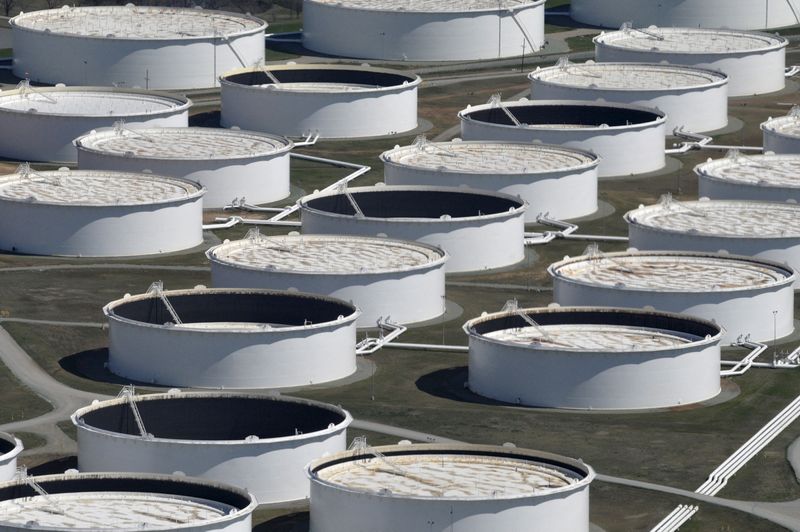By David Gaffen
(Reuters) -U.S. crude oil stockpiles fell unexpectedly last week as overall refined product demand reached an all-time record, according to government data on Wednesday, showing how the U.S. economic pace is cutting into the market's already tight supply.
Crude inventories fell 4.8 million barrels in the week to Feb. 4 to 410.4 million barrels, their lowest for commercial inventories since October 2018, the Energy Information Administration said. Analysts had forecast in a Reuters poll a 369,000-barrel rise.
Overall, the mild softness in oil demand witnessed in early January due to the Omicron coronavirus variant seems to have passed.
U.S. product supplied - the best proxy for demand - peaked at 21.9 million barrels per day (bpd) over the past four weeks due to strong economic activity nationwide. Both U.S. demand for distillates like diesel, along with propane and propylene, surged.
Weekly gasoline product supplied jumped to 9.1 million bpd, though the broader four-week average is slightly below seasonal levels.
"This is a stark rebound of gasoline demand; we're past Omicron and we have renewed travel demand. Refineries are clearly running more which contributed to the crude drawdown," said John Kilduff, partner at Again Capital in New York.
Refiners have had a hard time keeping up with demand, as crude runs rose by 329,000 bpd in the last week, EIA said, boosting refinery utilization rates by 1.5 percentage points to 88.2% of their overall capacity.
U.S. gasoline stocks fell by 1.6 million barrels to 248.4 million barrels, the EIA said. Distillate stockpiles, which include diesel and heating oil, fell by 929,000 barrels in the week.

Net U.S. crude imports fell by 1.42 million bpd and crude stocks at the Cushing, Oklahoma, delivery hub fell by 2.8 million barrels, the EIA said.
Oil prices spiked on the data. Brent crude futures gained 94 cents to $91.72 a barrel by 10:55 a.m. EST (1555 GMT) while U.S. crude gained 66 cents to $90.02 a barrel.